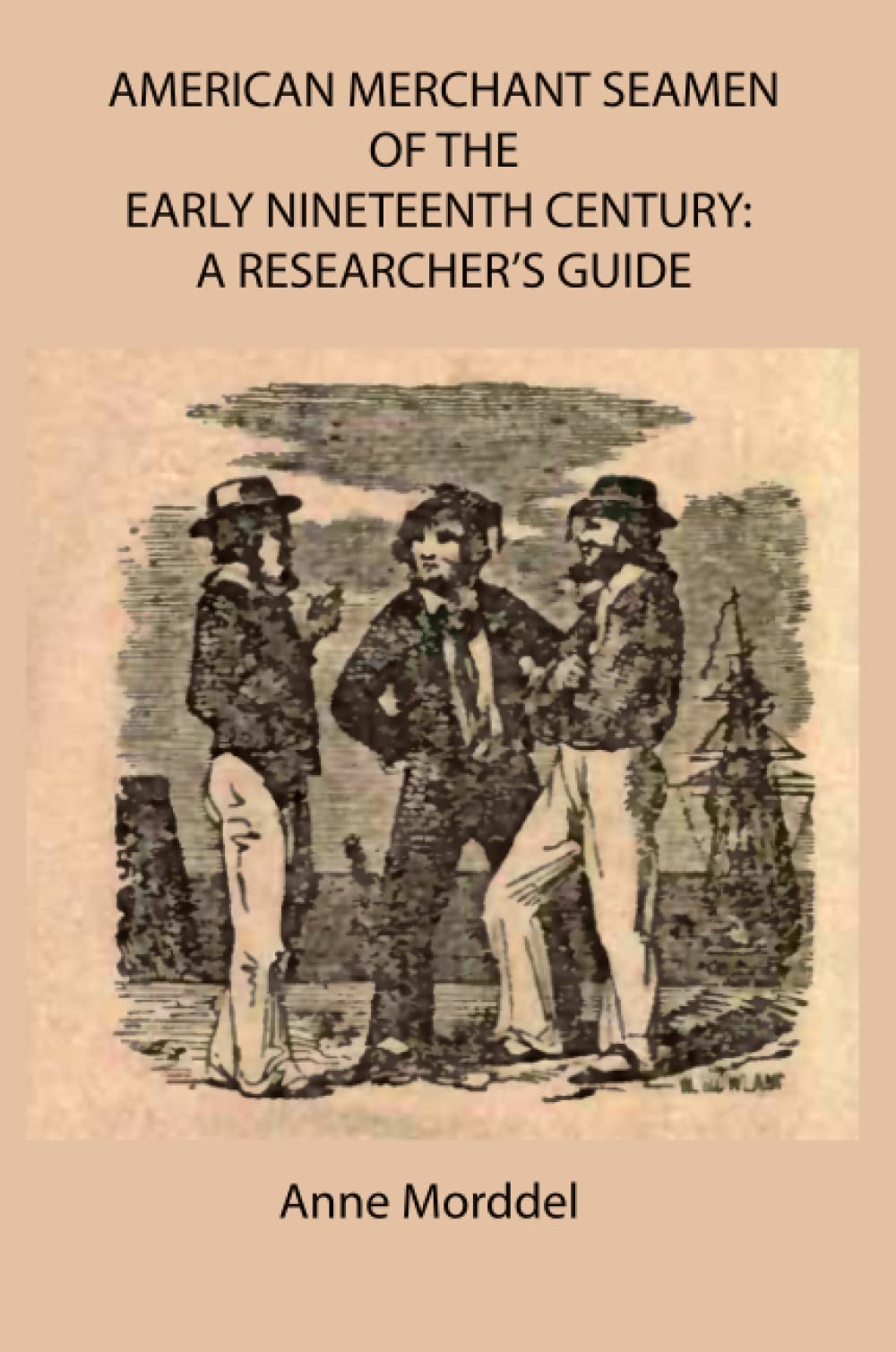American Merchant Seamen of the Early Nineteenth Century: A Researcher’s Guide
Anne Morddel
 Anne Morddel has undertaken a monumental task of explaining how to document American seamen who lived and worked during the first thirty years of the nineteenth century. The major problem facing scholars interested in the story of American mariners during the era is that merchant ships normally did not carry crew lists, and even when they did those lists rarely survived. Some information about mariners can be gleaned from the Seaman’s Protection Certificates, which offers descriptions of seamen in question, and details may be found in vessel registration documents. Otherwise, if a sailor got into trouble, there would be some record of them, or if a ship wrecked, was captured, or was stopped at sea there could be a record of an individual. Perhaps when a ship’s captain protested to a consul or to a port authority there could be some information about an individual. As one can see, finding information about individual sailors is much like searching for the proverbial needle in a haystack.
Anne Morddel has undertaken a monumental task of explaining how to document American seamen who lived and worked during the first thirty years of the nineteenth century. The major problem facing scholars interested in the story of American mariners during the era is that merchant ships normally did not carry crew lists, and even when they did those lists rarely survived. Some information about mariners can be gleaned from the Seaman’s Protection Certificates, which offers descriptions of seamen in question, and details may be found in vessel registration documents. Otherwise, if a sailor got into trouble, there would be some record of them, or if a ship wrecked, was captured, or was stopped at sea there could be a record of an individual. Perhaps when a ship’s captain protested to a consul or to a port authority there could be some information about an individual. As one can see, finding information about individual sailors is much like searching for the proverbial needle in a haystack.
This volume reveals that some archives and records explained in this book are available at on-line repositories. Yet in most cases, only the archival finding aids or indexes of specific collections may be on-line. Should one be successful in locating the person in question, Morddel reminds us that British repositories send paper copies in the mail, while French and American archives generally send materials via email. To do such research, she also reminds us that scholars needs to be able to read French or even Spanish, and they need to decipher eighteenth and nineteenth century handwriting. A diligent scholar will ultimately find their individual and may even learn that their life at sea did not truly describe the extraordinary nature of their experiences.
Offering examples of many different British, French, and American repositories, Morddel explains how novices can begin research about maritime topics. First, define the period in which the mariner served at sea. hen look for the ships on which the sailor served. During the period, sailors may have suffered impressment aboard a British warship, thus forcing the researcher to examine British documents. French authorities could have captured them, meaning research in French archives. Morddel offers many examples of the routes of research through archives. Concluding, she provides two case studies that highlight the twists and turns research often takes. One is about a seaman from Marblehead serving on a French privateer who the British captured and who subsequently served in the British Navy. The second was a Nantucket whaler who ultimately died in a French prison. Both reveal the expansive degree of research necessary to document the mariner in question.
Morddel also offers as a final statement that those interested can get a very thorough survey and explanation of War of 1812 records concerning American mariners through an online course presented by the National Genealogical Society (https:www.ngsgenealogylorg/cgs/war-of-1812-records/). Ultimately, Morddel makes it clear in this useful book that those doing naval/maritime history will also encounter administrative, economic, and political sources at a variety of archives. Those interested in maritime history and documenting an individual who served a sea during the era will find this a very useful primer.
- The Author, 2020
- 6” x 9”, softcover, 97 pages
- Illustrations, notes, bibliography. $14.95
- ISBN: 9791096085095
Reviewed by: Gene Allen Smith, Texas Christian University
